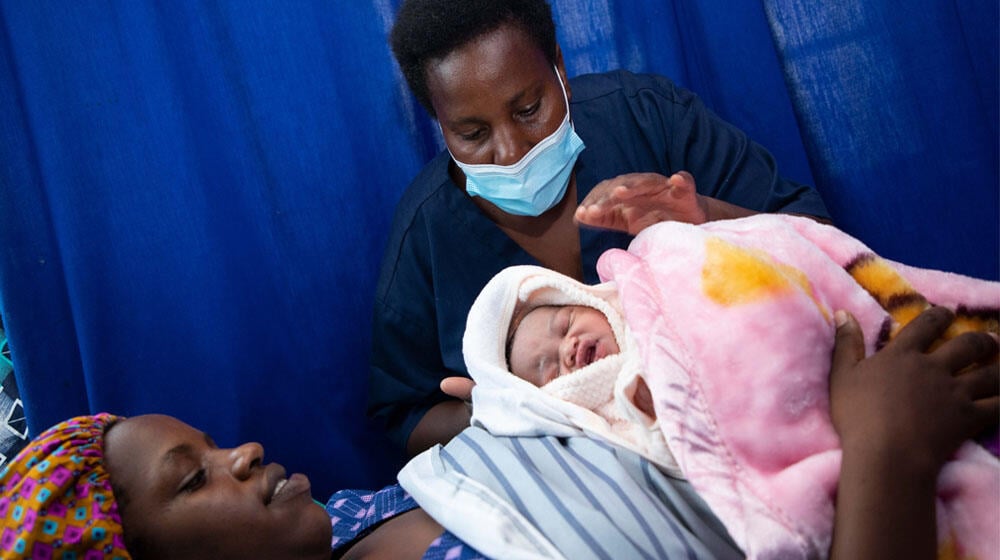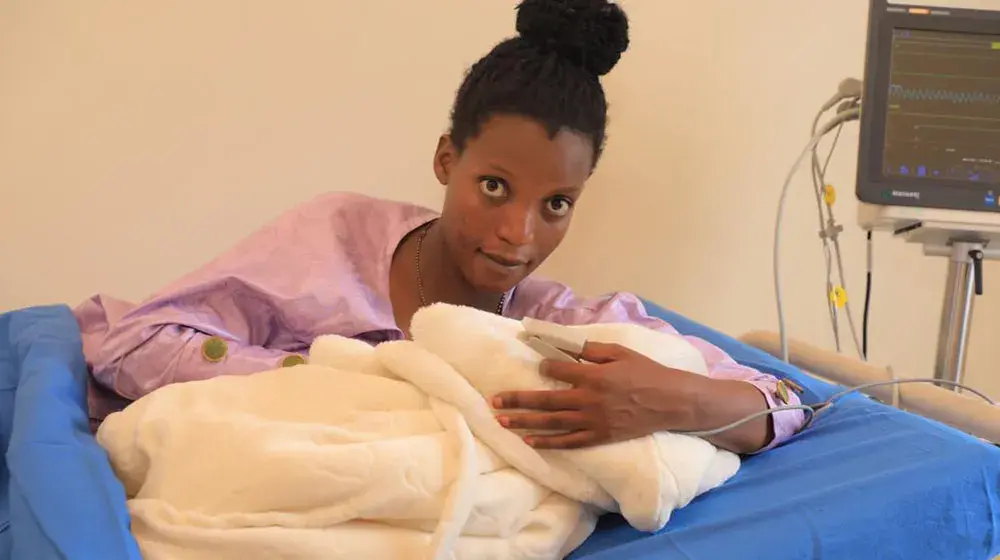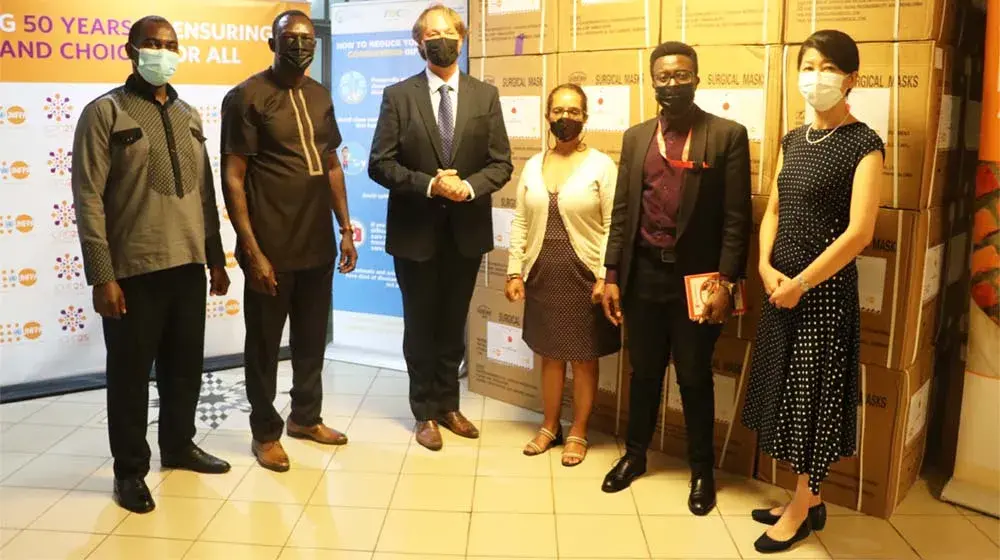In line with the Rwanda National Strategy for Transformation, health training institutions contribute to developing a capable and skilled workforce, ready to provide quality services in the health sector. Skilled nurses and midwives significantly contribute to achieving healthy lives and high standards of living towards realizing a world where every pregnancy is wanted and every childbirth is safe.
Nursing and midwifery learning institutions in Rwanda, like Kibogora Polytechnic located in Nyamasheke District, one of the three UNFPA-supported districts, adopt the Jeffries model, which proposes a theoretical model supporting simulation-based clinical teaching, which helps test the simulation impact on students and guide the design, implementation, and evaluation of highly reliable replications. This model focuses on the teacher, student, and educational practice to achieve the desired outcome based on the assumption that simulations, if well designed, will increase self-motivated student satisfaction and confidence.
To achieve its mission of educating people with a positive impact on their socio-economic lives, Kibogora Polytechnic partnered with the United Nations Population Fund (UNFPA) to equip its skills laboratories with simulation materials. This resulted in enhanced quality of education that covers a wide range of skills required for quality and integrated reproductive, maternal, newborn, child, and adolescent health services provision in an equitable, efficient, and sustainable manner across the country.
"Kibogora Polytechnic was the first school to receive accreditation worldwide by the International Confederation of Midwives (ICM) and the materials received from UNFPA greatly contributed to that. ICM was thrilled to find such simulation materials in a rural African training institution because they are normally found in developed countries, "said Mr. Jean Claude Twahirwa, the nursing and midwife head of the department.
“This accreditation led the institution to gain confidence at local and international levels. Today, we have students from Gabon, Madagascar, and many other countries” Twahirwa added.
So far, more than 800 students have graduated in general nursing and midwifery with skills gained from simulation laboratories equipped by UNFPA, and they are now employed at different levels of service delivery from hospitals, health centers, and projects, with others being self-employed in maternal and child health clinics.
"We are grateful to UNFPA for their assistance. Now the Kibogora Polytechnique is qualified to provide continuous professional development courses to nurses and midwives" says Twahirwa
Kibogora Polytechnic has contributed to improved maternal and child health in the country, specifically in the Western Province, starting in Nyamasheke District, where health services have improved due to competent nursing and midwives in our facilities.
UNFPA works to strengthen the capacity of the midwives in Rwanda to ensure safe motherhood and positive outcomes for both mothers and babies and to create an environment where midwives complement formal health services and are seen by both mothers and medical practitioners as a crucial part of maternal health care.




